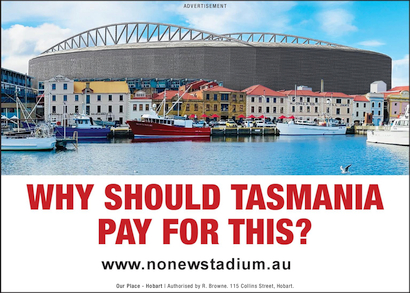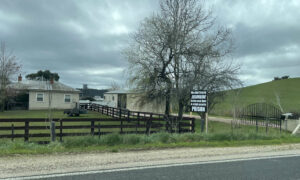WE should think more about this whole concept of ‘conscience’ voting.
John Howard appears likely to allow coalition members to vote according to their ‘conscience’ on the issue of a pill which terminates pregnancy. So members of the government will be allowed, on this rare occasion, to represent the views of their electorates on an issue of policy.
The notion draws into contrast the conflicting ideas of electoral representation versus party representation.
When we cast our vote, are we voting for a person who will represent our electorate, with its peculiar interests, in the national parliament? Or are we voting for a person who will represent the agenda of a party? The contrast is absolute. It’s highly unlikely that we can return someone who will do both.
The ‘conscience vote’ is a working example of how the framers of our constitution expected the House of Representatives to work: allowing for the peculiarities of regions right across the country to be represented in the formation of policy. And rightly too. The people of Albury are likely to have views of water usage which are at odds with those of the people of Renmark. Is it possible for one party to hold a policy on water usage which would equally satisfy the voters of all towns? And then to have equally agreeable polices on fuel subsidies, global warming and nuclear waste disposal?
Parties stand for nothing
Those organisations that we recognise as ‘traditional’ political parties are anachronisms which have come to dominate electoral systems in which they were never intended as key players. They are simply no longer relevant. In the United States the Democratic and Republican Parties historically represented a divide over the issue of slavery, with the former advocating expansion and the latter abolition. Today, who knows what they stand for? In this country the ALP was historically the party of choice of blue collar workers, whilst the Liberals represented the big end of town. How things have changed! Today in Tasmania, Labor and the big end of town could not be separated by Oppenheimer, whilst I can vividly remember Robin Gray’s Liberals being lionised by West Coast miners.
Parties stand for nothing. Their race to the centre of the political spectrum is indicative of their desire for maximum electoral appeal and the result is a mass of indistinguishable brands. One need look no further for confirmation of this fact than the spate of knife-edged political contests between the major parties throughout the globe.
The traditional parties, across the world, have become little more than vote brokers: highly resourced machines which endorse and promote candidates for consumption. If they can achieve sufficient ‘market share’ then they gain political control of regions, provinces, states and countries.
Why do we allow this to continue? Habit? Apathy? I think so, and I think that the major parties depend on our apathetic habits.
There is an easy remedy to this, and it is particularly applicable to a place like Tasmania where candidates are close enough to their electorate to be personally known by the voters. Deal the parties out of the game. When you next consider your ballot paper, don’t look at who they stand for, look at what they stand for. Look at who they are. Don’t vote for the highly promoted brand, vote for the person who will represent you and your vision. Its not a contest between posters, placards and post. It’s a contest between ideas. Meet your candidates. Challenge them. Make them justify their 8 second soundbites. When they roll out a cliché ask them what they mean. Make them set goals for your town, suburb or region. It’s about more than just voting. Democracy is a system where power resides with the people. If you leave it to someone else it’s not a democracy.
Its an appalling situation where one man deigns to allow, on rare occasions, for government by ‘conscience’. Make every vote a ‘conscience’ vote by carefully considering yours.


























Barry Brannan
December 12, 2005 at 20:32
My expectation of this conscience vote is not that members will “represent the views of their electorates” but that they will vote according to their personal views..
For instance I can’t see a deeply religious MP voting in favour of an abortion pill, no matter what the views of people in their electorate.